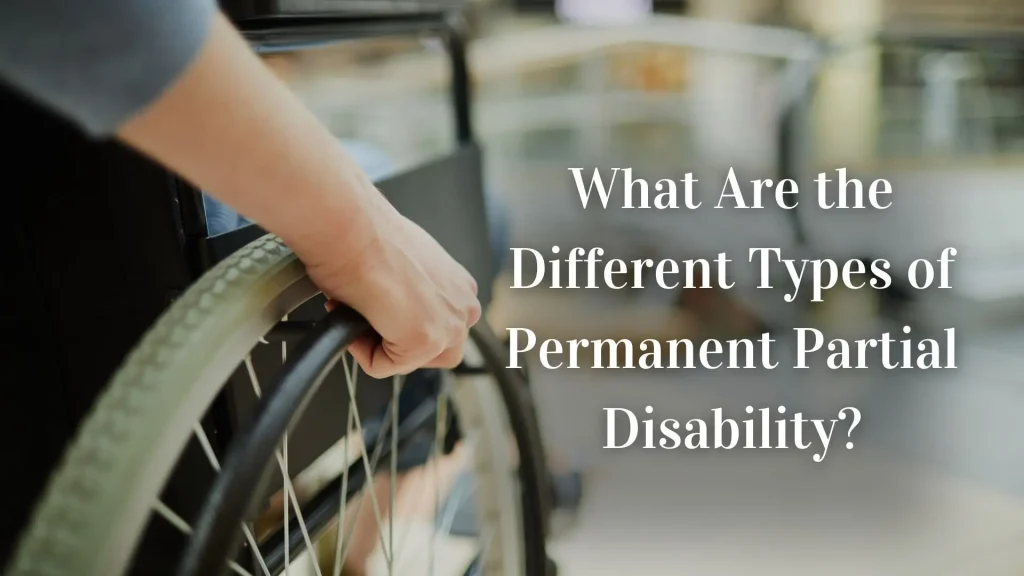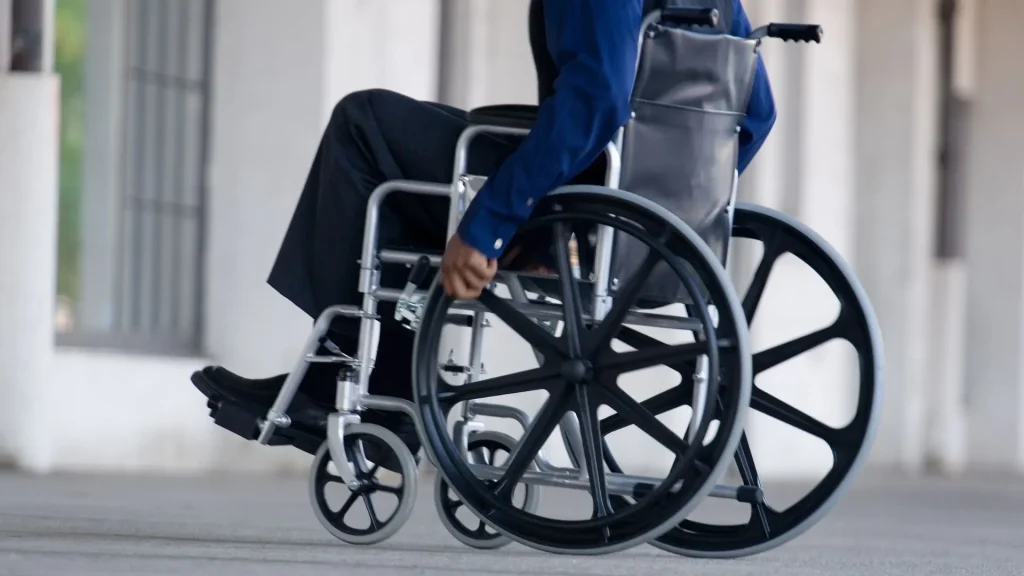
If you suffered an injury on the job in Indiana, you may wonder about partial disability benefits. Through workers’ compensation, you could receive disability benefits that fall into one of the four following categories:
- Temporary Partial Disability (TPD)
- Temporary Total Impairment (TTI)
- Permanent Partial Impairment (PPI)
- Permanent Total Disability (PTD)
What Is Permanent Partial Disability?
If you suffer a work injury that results in permanent impairment but does not prevent you from working, you have a permanent partial disability (called “permanent partial impairment” in Indiana workers’ compensation cases). For example, losing a hand in a workplace amputation accident would qualify for permanent partial disability benefits. An amputated hand is a permanent injury, but it doesn’t stop you from being able to work in some capacity.
Temporary Disability vs. Permanent Disability
The difference between temporary and permanent disability is the timeframe of your disability. Will you ever recover from your disability? If so, it’s temporary. If not, it’s permanent.
A good way to think about these distinctions is with a broken hand versus an amputated hand. Your broken hand will eventually heal, and there’s a good chance you will regain total function. However, an amputated hand is permanently lost, even if replaced by a prosthetic.
Partial Disability vs. Total Disability
The difference between partial and total disability is your ability to work. With a partial disability, you’re still able to work, but with some restrictions. For example, you may:
- Not be able to work a full 40 hours per week
- Need special accommodations at work
- Need to work in a different position or at a different job entirely
Total disabilities prevent you from working altogether.
Injuries that Result in Permanent Partial Disability
Various injuries can lead to permanent partial disability depending on the injury’s severity and your occupation. Some of the most common injuries that result in permanent partial disability benefits include:
- Musculoskeletal Injuries – These injuries include fractures, breaks, dislocations, and ligament and muscle tears that do not heal entirely. The result is often chronic pain and limited mobility that prevent the injured worker from working at full capacity.
- Nerve Damage – Injuries that cause partial paralysis or loss of sensation can lead to permanent partial disability. Carpal tunnel syndrome and nerve entrapment are two of the more common versions of workplace nerve damage injuries.
- Amputations – Losing a limb or even a finger can significantly impact a worker’s ability to perform their job duties. These are severe and traumatic workplace injuries.
- Vision or Hearing Loss – Partial or complete loss of vision or hearing can impact a worker’s ability to perform certain tasks. Vision and hearing loss do not need to be the result of a single traumatic event. Many workers lose their hearing over time due to working in loud environments without proper auditory protection.
- Traumatic Brain Injuries – Traumatic brain injuries (TBIs) are among the most severe workplace injuries. Concussions are mild traumatic brain injuries that often only result in temporary impairment. However, traumatic brain injuries can also cause permanent cognitive and physical impairment. Call an Indianapolis head and brain injury attorney if you’ve encountered TBI at work.
- Burn Injuries – Severe burn injuries can lead to permanent scarring, disfigurement, and loss of function in the affected areas.
How Do I Apply for Partial Disability in Indiana?
In addition to workers’ compensation benefits for injured workers, another possible source of disability benefits is the Social Security Administration. You need not have suffered a work injury to qualify for Social Security disability (SSDI) benefits. Instead, you must demonstrate that you suffer from a disabling injury and that you have enough work history to qualify.
According to the Social Security Act, an injury must meet a few criteria to qualify as a disability. These criteria are:
- The injury must limit your ability to earn an income.
- The injury must be medically determinable.
- The injury must last for a continuous period of at least one year.
You’ll need evidence to prove that your injury meets these criteria, which an attorney can help you collect.
Collecting Evidence in Support of Your Disability Claim
Proving your disability, whether to secure workers’ comp benefits or SSDI, requires thorough documentation of your injuries and their impact on your finances. When you hire an injury and disability attorney, part of their job is to assist you in gathering evidence. Some key pieces of evidence that can support your claim include:
- Medical Records – Your medical records are vital for proving your claim for disability benefits. These records should outline your diagnosis, treatment plan, and the extent of your disability.
- Physician Statements – Your treating physician should provide a comprehensive statement regarding your condition and its impact on your work. If possible, their statement should include a disability rating.
- Work Restrictions – Document any work restrictions or limitations recommended by your physician. These restrictions can include prohibitions on lifting heavy objects or standing for extended periods.
- Employment Records – Keep records of your job duties. These records should include any changes in your duties since your injury and any accommodations made by your employer.
- Financial Statements – Your pay stubs and other financial statements can illustrate your injury’s impact on your income.
What Qualifies for Short-Term Disability in Indiana?

People employed by the State of Indiana may also be eligible for short-term disability benefits. These benefits typically cover workers whose disabilities don’t last long enough to qualify for Social Security Disability benefits. The benefits of short-term disability last up to six months, with a maximum of five months of payments.
There is an initial 30-day “elimination period” during which you must be unable to work. After this period, your benefits will begin. The payments you receive while on short-term disability are 60 percent of your bi-weekly wages before taxes.
Indiana Injury & Disability Attorney
Navigating the complexities of an injury claim on your own can be difficult, especially while recovering from an injury. An experienced Indianapolis personal injury attorney from Hankey Marks & Crider can assist you in filing your claim and negotiating with the insurance company.
Contact us online or call (317) 634-8565 for a free consultation about your case. Our team will evaluate your case, help you understand your legal options, and explain the disability benefits system.

